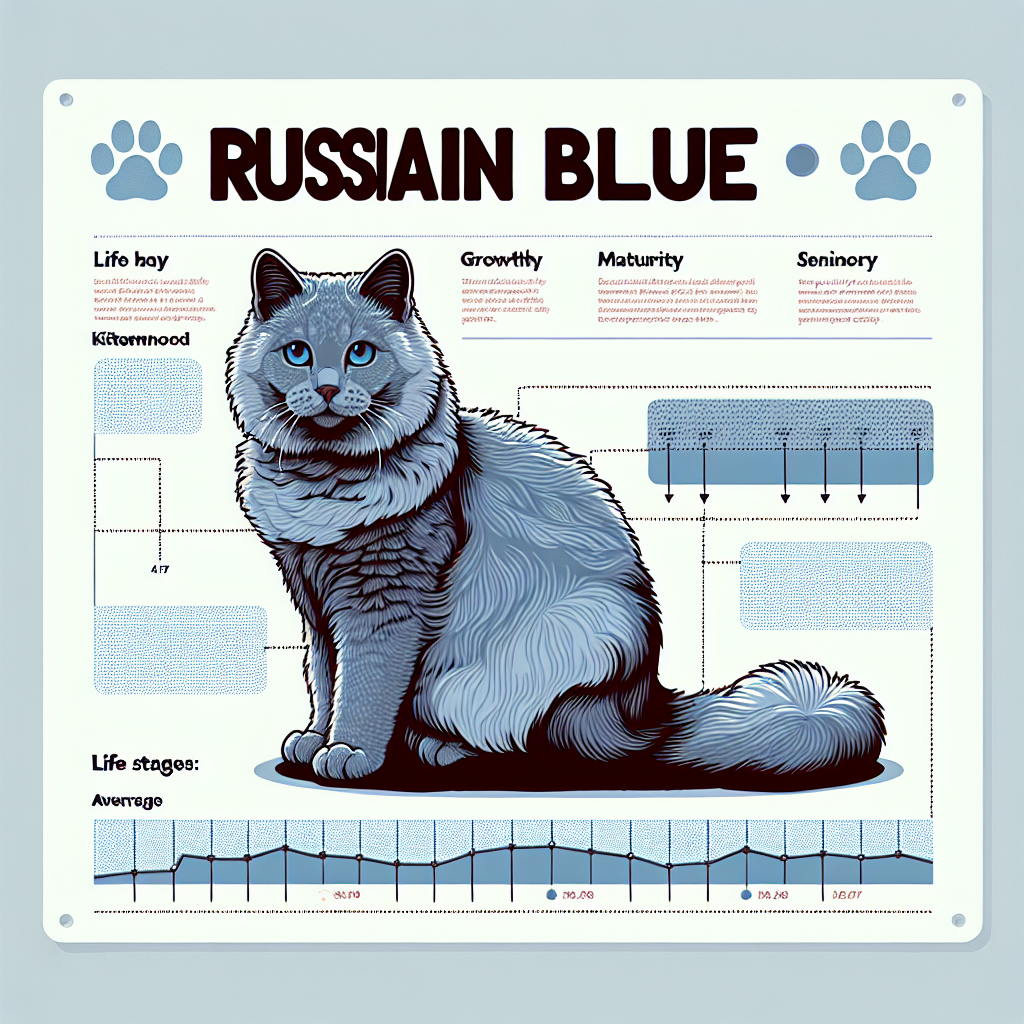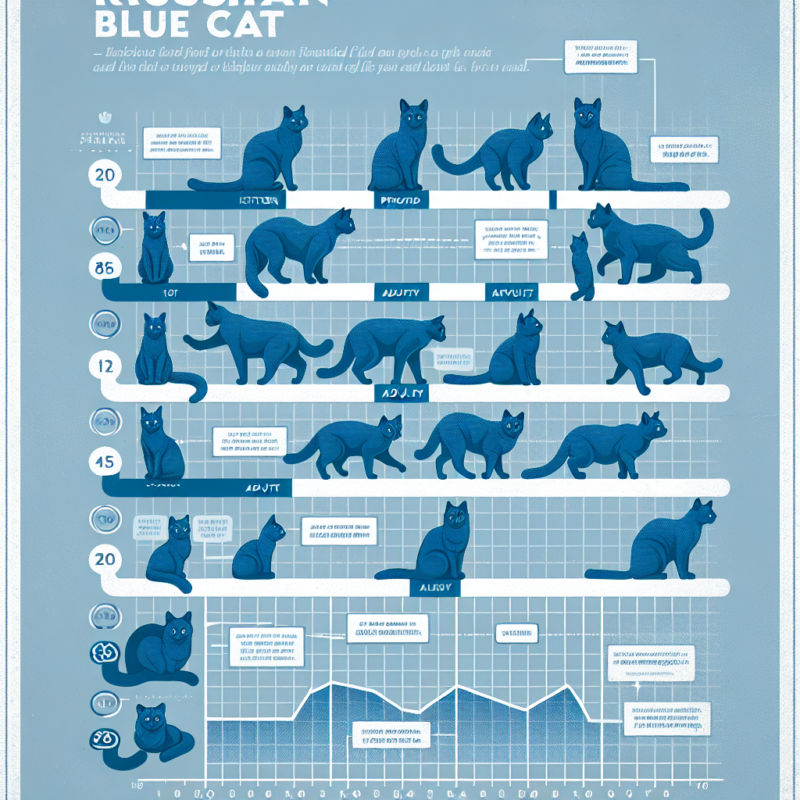Blog
how long do russian blue cats live
Factors That Affect the Lifespan of Russian Blue Cats

Russian Blue cats are known for their striking blue-grey coat, piercing green eyes, and affectionate personalities. They have been a popular breed for centuries, with their origins tracing back to the port city of Arkhangelsk in Russia. These cats are known for their intelligence, playfulness, and loyalty to their owners. However, like all living creatures, Russian Blue cats have a limited lifespan. In this article, we will explore the factors that can affect the lifespan of these beautiful felines.
Genetics play a significant role in determining the lifespan of Russian Blue cats. Just like humans, cats inherit certain traits and health conditions from their parents. If a Russian Blue cat comes from a line of healthy and long-lived ancestors, it is more likely to have a longer lifespan. On the other hand, if the cat’s lineage has a history of health issues or shorter lifespans, it may also be affected. Therefore, it is essential to research the breeder and the cat’s lineage before bringing a Russian Blue into your home.
Another factor that can affect the lifespan of Russian Blue cats is their overall health and well-being. These cats are generally healthy and have a robust immune system. However, like all breeds, they are susceptible to certain health conditions. Some of the common health issues that can affect Russian Blue cats include heart disease, urinary tract infections, and dental problems. It is crucial to take your cat for regular check-ups and address any health concerns promptly to ensure a longer lifespan.
Diet and nutrition also play a vital role in the lifespan of Russian Blue cats. These cats have a high metabolism and require a diet that is rich in protein and nutrients. A well-balanced diet can help maintain their overall health and prevent obesity, which can lead to various health issues. It is essential to feed your Russian Blue cat high-quality cat food and avoid giving them table scraps or human food, which can be harmful to their health.
Exercise and mental stimulation are also crucial for the longevity of Russian Blue cats. These cats are known for their playful and active nature, and they require regular exercise to stay healthy. Providing them with toys and engaging them in interactive playtime can help keep them physically and mentally stimulated. A lack of exercise and mental stimulation can lead to obesity, behavioral issues, and a shorter lifespan.
The environment in which a Russian Blue cat lives can also affect its lifespan. These cats thrive in a calm and stable environment. They do not do well in households with a lot of noise, chaos, or frequent changes. Stress and anxiety can have a significant impact on their health and well-being, leading to a shorter lifespan. It is essential to provide a peaceful and stable home for your Russian Blue cat to ensure a longer and happier life.
Lastly, the level of care and attention given to a Russian Blue cat can also affect its lifespan. These cats are known for their affectionate and loyal nature, and they thrive on human companionship. Neglect or lack of attention can lead to depression and other health issues. It is crucial to provide your Russian Blue cat with love, attention, and proper care to ensure a longer and happier life.
In conclusion, the lifespan of Russian Blue cats can vary depending on various factors such as genetics, overall health, diet, exercise, environment, and level of care. By understanding these factors and taking the necessary steps to ensure the well-being of your Russian Blue cat, you can help them live a long and healthy life. These beautiful and intelligent felines make wonderful companions, and with proper care, they can be a part of your family for many years to come.
Tips for Extending the Lifespan of Your Russian Blue Cat
Russian Blue cats are known for their striking blue-grey coat, piercing green eyes, and gentle demeanor. These elegant felines have been a popular breed for centuries, with their origins tracing back to the royal courts of Russia. While they may have a regal appearance, Russian Blue cats are also known for their long lifespan. On average, these cats can live up to 15-20 years, with some even reaching the ripe old age of 25. However, like all living creatures, there are steps that can be taken to extend the lifespan of your beloved Russian Blue cat. In this article, we will discuss some tips for extending the lifespan of your Russian Blue cat.
First and foremost, proper nutrition is essential for the health and longevity of your Russian Blue cat. These cats have a sensitive digestive system, and it is crucial to feed them a high-quality, balanced diet. Look for cat food that is specifically formulated for Russian Blue cats, as it will contain the necessary nutrients and vitamins to keep them healthy. Avoid giving your cat table scraps or human food, as it can lead to obesity and other health issues. Additionally, make sure your cat has access to fresh, clean water at all times to prevent dehydration.
Regular exercise is also crucial for extending the lifespan of your Russian Blue cat. These cats are known for their playful and active nature, and it is essential to provide them with opportunities to exercise and play. This can include interactive toys, scratching posts, and even a cat tree for them to climb. Regular playtime not only keeps your cat physically fit but also mentally stimulated, which is essential for their overall well-being.
Another important aspect of extending your Russian Blue cat’s lifespan is regular veterinary check-ups. These cats are generally healthy, but like all breeds, they are prone to certain health issues. Regular check-ups can help detect any potential health problems early on, allowing for prompt treatment and a better chance of a full recovery. Your veterinarian can also provide you with advice on how to best care for your Russian Blue cat and any specific health concerns to watch out for.
Proper grooming is also essential for the health and longevity of your Russian Blue cat. These cats have a thick, double coat that requires regular brushing to prevent matting and hairballs. Regular grooming also allows you to check for any skin issues or abnormalities that may require medical attention. Additionally, grooming is an excellent opportunity to bond with your cat and provide them with some much-needed affection and attention.
Lastly, creating a safe and stress-free environment for your Russian Blue cat is crucial for their well-being and lifespan. These cats are known for their sensitive nature, and any changes or disruptions in their environment can cause them stress and anxiety. Make sure to provide them with a quiet and comfortable space to retreat to when they need some alone time. Additionally, avoid sudden changes in their routine or environment, as it can cause them unnecessary stress.
In conclusion, Russian Blue cats are a beautiful and long-lived breed, with an average lifespan of 15-20 years. However, by following these tips for extending their lifespan, you can ensure that your beloved feline companion lives a long and healthy life. Remember to provide them with proper nutrition, regular exercise, veterinary check-ups, grooming, and a stress-free environment. With proper care and attention, your Russian Blue cat can be by your side for many years to come.

